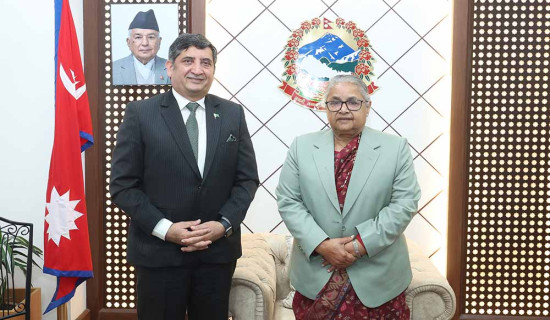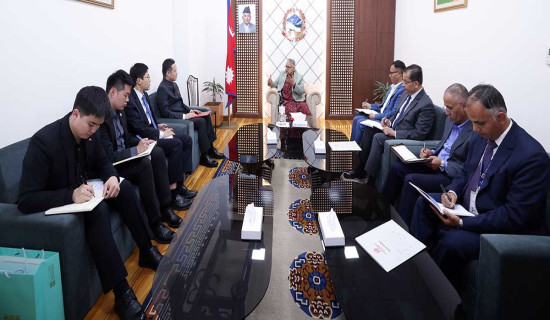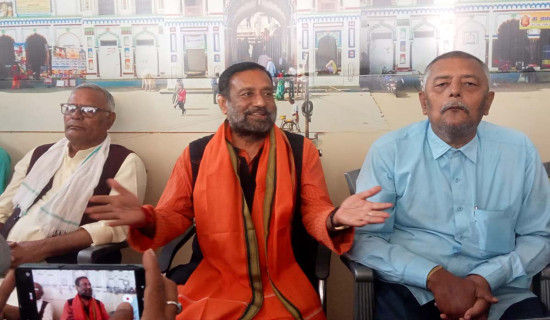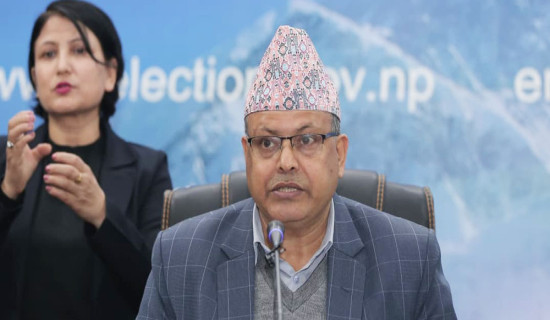- Saturday, 28 February 2026
Building Civil Service Institution In Nepal
The core functions of civil service are to serve the people and protect the social, cultural, moral, and ecological capitals of a nation. Civil service is a permanent institution, and it has institutional memories and technical expertise. Being a perpetual institution, its modus operandi and values should be grounded on integrity, impartiality, commitment, result-driven and the highest level of professionalism.
Civil servants must follow certain guiding rules in the course of their day-to-day work. The first rule is: no policy choice. Since public policy shapes the behaviour of people with sanctions, only the representatives of the people have the authority to formulate the policies. The bureaucrats cannot select the public policy as they do not have an electoral mandate. Given their technical expertise, it is the professional duty of civil servants to support the governing political institutions in making rational policies. The second rule is: no implementation bias. The fundamental administrative value of civil service in a democratic society is to maintain impartiality in the implementation of duly formulated public policies.
Professional responsibility
In a democracy, different political parties with different philosophical doctrines may win elections and form the government. This may change the course of public policies. It is the professional responsibility of the civil servants to implement the policies crafted by the political officials in the office. The third rule is: no compromise on due process of law. The classical doctrine of political-administrative accountability has been changing substantially. In recent years, political officials have not taken accountability for bureaucratic actions. The bureaucracy should not implement any policy crafted by political actors that is against the prevailing provisions of law and the constitution.
Over the last few years, the very fabric of the civil service has been crumbling in Nepal. Many factors are attributed to the erosion of administrative values of the civil service. The most damaging factor has been the politicisation of bureaucracy, which has fuelled the inefficiency, nepotism and favouritism. It has been accepted practice, if not the culture, in the country to transfer the civil servants when the government changes. Building a new Nepal requires strong civil service institutions, not humiliated ones. One of the biggest threats to civil service is the growing deterioration of meritocracy. The country is suffering from brain drain. The talented youths do not want to stay in the country. Due to globalisation and digitalisation, they have the opportunity to observe progress made by other countries and to exploit opportunities abroad. As a result, Nepal is losing its talented people every year. Civil service has not been able to attract them.
The career path in the civil service is unpredictable. While there is no political interference in promotions, the timing of promotions is subject to frequent changes. There is no consistency across different civil service groups regarding promotion. Due to unpredictable promotions, the government is always under pressure to increase the size of top-level posts. There are many commanders with few people to supervise. This has eroded the status and values of the position. The transfer system has been the greatest source of bureau-pathology in the country, from bottom to top. In recent days, it is almost rare to see any secretary serving for more than two years in any ministry. The ministerial cadre system has been damaged, if not wiped out, in administrative ministries, resulting in a loss of institutional memory. Many ministries have lost their institutional capital due to ad-hoc restructuring.
Who, then, is responsible for these problems? The answer is partially civil servants themselves and, to a large extent, the political parties in the country. Bureaucracy is a part of the larger society. Their behaviour is determined by the ethical foundations of society. What they learn from their parents, their neighbourhoods, and their schools matters significantly in their work-life behaviour. Our forefathers bonded our diverse societies that were grounded on the principles of religious coexistence, social harmony, and compassion. Nepal is a source of Mundhum, Buddhism, and Vedic philosophy, which are intertwined and interconnected.
Deep wounds
We are losing these values exponentially, and we are developing an anarchic society where greed, fierce competition, and intolerance are the rules of the game. Political parties in the country could not grasp the basic fabric of our society, which was resilient enough to withstand crises. They should acknowledge the contributions of the civil service to the development of this country. We can find many hard-working and committed civil servants working silently and retiring from the job without any awards and any post-retirement greed.
There are deep wounds in the civil service apparatus that need to be cured. A nation will never flourish if it humiliates civil servants and always blames them. The civil servants in Nepal are among the most underpaid in the world. There is inequity in career opportunities. The government has not made investments in them.
The in-service training they receive is classical. Civil service is an institution, not an instrument of partisan interest. They are an educated workforce. Singapore developed its country by developing its civil service institution. South Korea did the same, and now China is following suit. Nepal must develop its civil service institution and must motivate them. If the water in politics is clean, the water in civil service will be automatically clean. If anybody likes to clean the staircase, the obvious rule is that he or she must clean from the top. This metaphor applies to politico-administrative behaviour as well.
(The author is former Secretary of the Government of Nepal)










-original-thumb.jpg)






